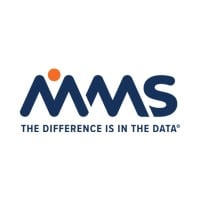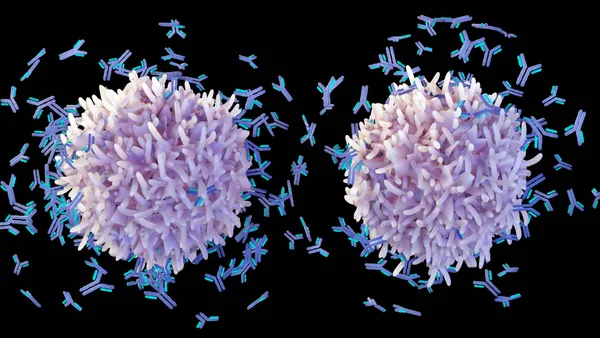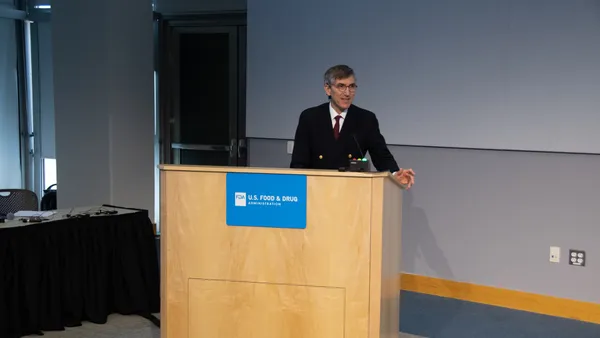Today, a brief rundown of news involving Precigen and Pfizer, as well as updates from the Institute for Clinical and Economic Review, Superluminal Medicines and Generation Bio that you may have missed.
The Food and Drug Administration granted full approval to a first-of-its-kind treatment for recurrent respiratory papillomatosis, a rare and potentially life-threatening condition caused by persistent HPV infections. Thursday’s clearance of Precigen’s Papzimeos, an immunotherapy that helps clear HPV-infected cells, was based on study results showing a little more than half of drug recipients didn't need surgery within a year of therapy. Center for Biologics Evaluation and Research director Vinay Prasad, who rejoined the FDA this week, described the approval as proof “randomized trials are not always needed to approve medical products.” That statement should be “reassuring” to biotech investors concerned about stricter regulatory standards under Prasad, wrote Cantor Fitzgerald analyst Jennifer Kim. Precigen shares rose higher Friday on the news. — Ben Fidler
An experimental Pfizer drug for sickle cell disease failed to meet its goal in a Phase 3 study, the company said Friday. Testing showed that treatment with inclacumab, a drug Pfizer acquired via its 2022 buyout of Global Blood Therapeutics, failed to significantly reduce versus placebo the pain crises people with sickle cell often experience. Pfizer said it would share analyses of the data with the scientific and patient community in “due course.” Last year, the company pulled from market another sickle cell drug, Oxbryta, that it gained from Global Blood, citing safety concerns. The company plans to provide updates on Oxbryta and a third Global Blood drug, the experimental osivelotor, when they become available. — Ned Pagliarulo
Eli Lilly will collaborate with biotechnology startup Superluminal Medicines to develop new drugs for cardiometabolic diseases and obesity. Through the alliance, the two intend to discover and advance small molecule medicines aimed at undisclosed G protein-coupled receptor, or GPCR, targets “relevant” to those conditions. Lilly will receive exclusive rights to the compounds emerging from the deal, while Superluminal could get up to $1.3 billion in total payouts, including an unspecified upfront payment as well as an equity investment, the companies said Thursday. — Ben Fidler
Autolus Therapeutics is delaying launching its leukemia cell therapy Aucatzyl in Europe following approval there as the company “evaluates potential pricing and feasibility of market entry opportunities” in some countries. Launch in Germany is on hold and Autolus “does not anticipate any EU sales of Aucatzyl in 2025 and 2026,” the company said in its second quarter earnings report. In the U.K., where Aucatzyl has also been approved, a government cost-effectiveness monitor has initially decided not to pay for it. Autolus said it “will continue to work towards a pathway for patient access to therapy in the U.K.” Approved by the Food and Drug Administration in November 2024, Aucatzyl earned just shy of $30 million in sales in the first six months of 2025, all from the U.S. — Jonathan Gardner
Generation Bio revealed preclinical results suggesting a delivery technology it’s developing can effectively send nucleic acid payloads into T cells. But the company also said this week that it may not be able to raise the funds to prove that approach works in humans and, as a result, began a strategic review that could end in a sale or merger. Generation will lay off roughly 90% of its workforce, including all of its research and development staff, by the end of October. Company shares climbed 60%, though they’ve lost much of their value since the company’s initial public offering in 2020. — Ben Fidler













